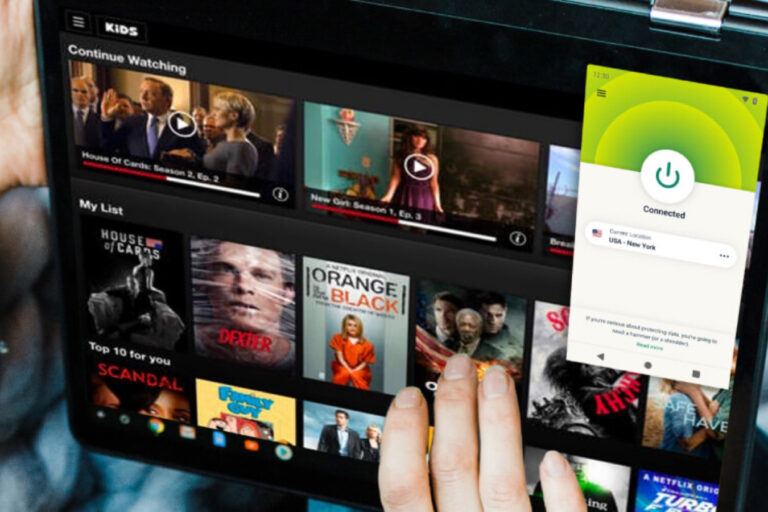One of the best things about streaming video is that it makes an enormous library of movies and TV shows available at your fingertips. And this means a feeling of frustration is inevitable when you discover that something you really want to watch isn’t available in your geographic area.
A VPN offers a way around this region locking, by hiding your real location and replacing it with one of your choosing. In this way, you can access the overseas catalogues of Netflix and many other streaming video providers by connecting to a VPN – though it’s not a foolproof process.
Sponsored: protect Your Privacy. Unlock the World
ExpressVPN gives you the freedom to browse the internet safely, securely, and without limits. With ultra-fast servers in 94 countries, your data stays private and your connection stays lightning-fast—whether you’re at home or on the go.
✅ Top-tier encryption to keep your data safe
✅ No activity logs—your privacy is our priority
✅ Bypass geo-restrictions and access content worldwide
✅ 24/7 customer support ready when you need it
✅ Easy-to-use apps for all your devices
Experience the internet the way it’s meant to be—open, private, and secure.
Join millions of users who trust ExpressVPN to keep them safe online.
The way a VPN works is by routing your internet traffic through its own servers. This means that the IP address a service like Netflix sees when you connect to it is the address of the VPN’s exit node rather than the IP address assigned to you by your ISP. While an IP address isn’t directly tied to a location on Earth, blocks of IP addresses are used by ISPs, and by looking up which ISP an IP address is being used by, a streaming provider can work out where you’re connecting from.
Self service servers
A VPN allows you to choose a server, and therefore an IP address, anywhere on the planet – or at least in one of the countries the VPN provider maintains a presence in – and therefore access the streaming catalogue of that country.
At least, that’s the theory. Streaming providers are very jealous of their region locking practices, and may only hold the rights to provide a particular show in specific regions. Therefore they’re getting wise to the use of VPNs to circumvent the barriers, and may limit your access or display a cut-down catalogue if they detect that you’re using one to connect to their service. Netflix, for example, has a help page that describes exactly what it will do: “While using Netflix through a VPN, we will only show you TV shows and movies we have worldwide rights for.” This generally means Netflix Originals, as well as older shows and movies.
That seems pretty clear, and it means there’s a bit of trial and error involved in finding a VPN server that not only gives you the content you’re looking for, but also goes undetected by the streamer. This is a constantly shifting arms race, and what works one week may not work the next. Some VPNs provide servers specifically advertised for streaming purposes, so it’s always worth trying those first.
You’ll also need a VPN that offers speeds fast enough to watch 4K video without buffering or dropping out. Netflix recommends a minimum speed of 15Mbps for 4K, and you’ll want more than that if you have more than one person watching, or want to visit websites at the same time. You may need to switch between different servers in the country you want to stream from before you find one that’s fast enough. Servers based in cities with large populations are likely to be faster, but also more popular. Alternatively, step down to 1080p resolution, which only requires 5Mbps.
Read the full article here
